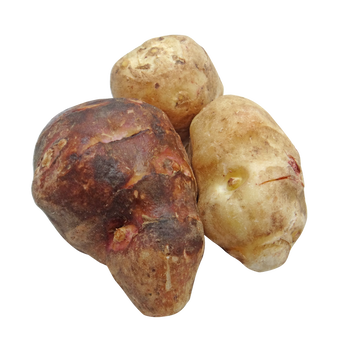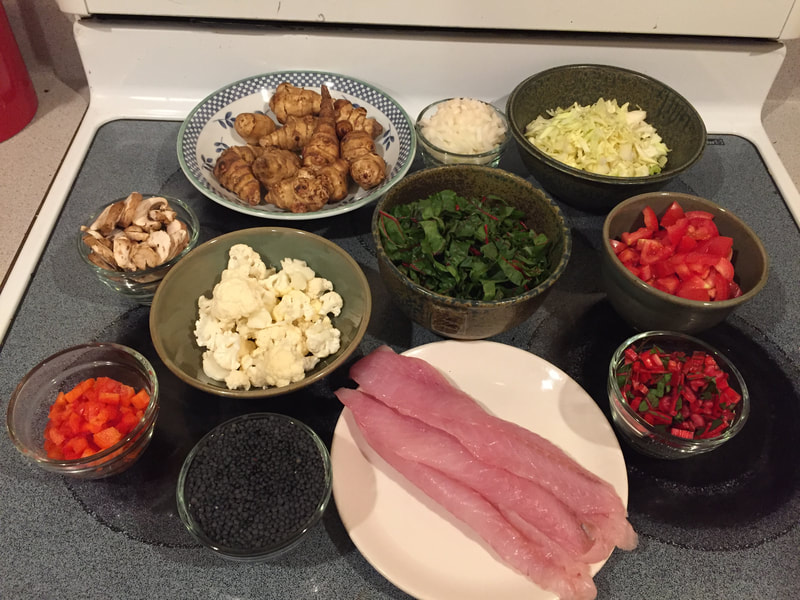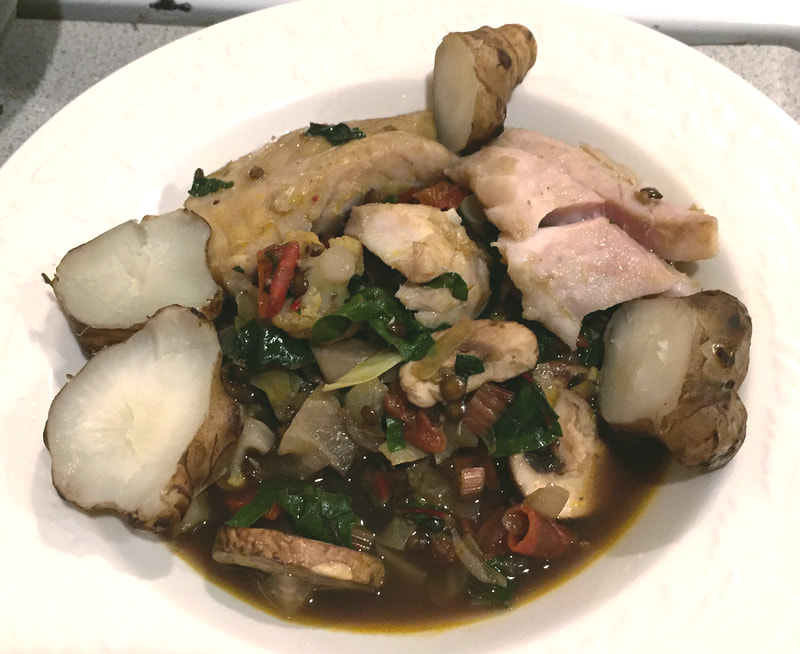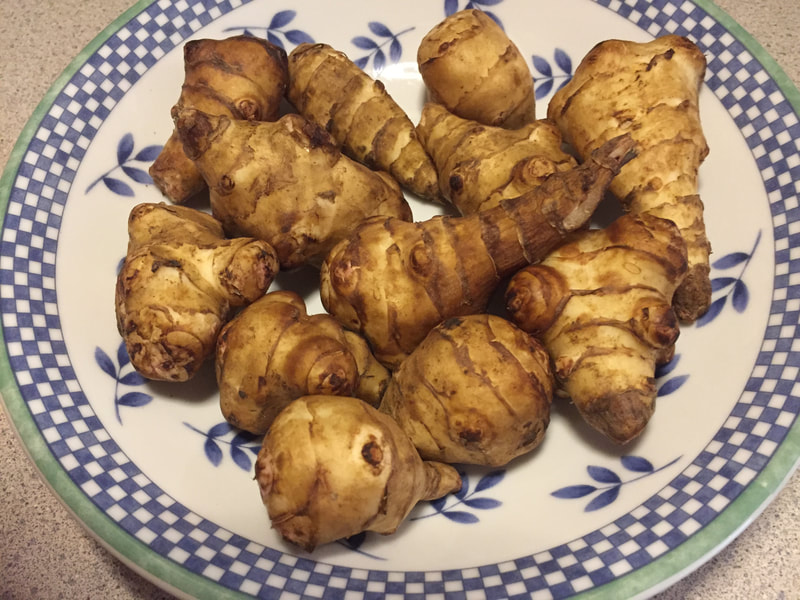What does a sunchoke taste like?Choose sunchokes that are very firm and smooth. Some say they taste like artichoke hearts. Others say they are rather sweet and nutty. They have a texture like a potato and are creamy when cooked. How do you eat sunchokes?Keep in mind, the flesh of the sunchoke turns brown, like apples or pears, when exposed to air. Mix with chopped raw vegetables and a tiny bit of lemon juice, should you plan on them sitting out for awhile. Like kohlrabi and jicama, you can eat this vegetable either raw or cooked. Ideas for using these include:
How nutritious are sunchokes?Sunchokes are rich in iron, potassium and thiamine. One cup of sliced sunchokes contains three grams of protein. They are also a good source of copper, niacin and vitamin C. (1) This vegetable is high in inulin, a “prebiotic” soluble fiber, which may help control your blood sugar. (2) This inulin can also cause gas. To avoid this, some say to use sunchokes that have been through a frost and others say to be sure to use lemon juice when you cook them. (3) Try each method and let me know what works for you! Since we have eaten them, in the dish highlighted below, we are now discussing where to plant them in our garden in the spring. The recipe below may seem lengthy, but it’s fairly straightforward and full of flavor. See notes after recipe. References: 1. https://nutritiondata.self.com/facts/vegetables-and-vegetable-products/2456/2 2. https://www.sciencedirect.com/science/article/pii/S0271531799001529 3. https://modernfarmer.com/2018/02/jerusalem-artichoke-sunchoke-recipe-prevents-gas/ Lentil Stew with Steamed Rock Fish and SunchokesServes 6-8 Recipe adapted from Cancer Lifeline Cookbook by Kimberly Mathai, MS, RD Ingredients:
Directions:
Notes:
~Nancy Miller, MA, MS, RDN
0 Comments
Leave a Reply. |
SD BlogA place for our consultant Registered Dietitian Nutritionists (RDNs) to share nutrition science, yummy and healthy recipes, tips on seasonal ingredients, and other nutritional musings. Enjoy! Categories
All
Archives
February 2024
|






 RSS Feed
RSS Feed